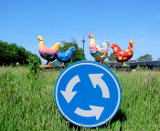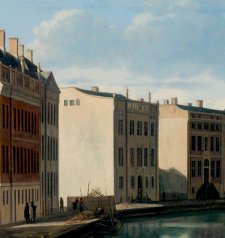 If you want to get cheap apples, starting today you can get them in Zeeland for 50 cents per kilogram. Martin Duivekot from Vrouwenpolder has 80,000 kilogram Jonagold apples and nowhere to put them, or so newspaper PZC claims.
If you want to get cheap apples, starting today you can get them in Zeeland for 50 cents per kilogram. Martin Duivekot from Vrouwenpolder has 80,000 kilogram Jonagold apples and nowhere to put them, or so newspaper PZC claims.
Apprently now that the Russians have closed the borders to European fruit, traders won’t touch his apples. The apples need to be harvested, Duivekot says, in order to make sure his trees still produce fruit next year. The European Union will buy his apples for 6 cents per kilogram, but having them picked professionally costs 10 cents per kilogram. I am sure you see the problem there.
That’s when Duivekot stumbled on the solution of letting consumers pick his apples for him. Considering though that picking your own fruit is a service offered by many farmers around the world even outside times of international tension, one might entertain the possibility this is little more than a publicity stunt.
(Photo by Alessio Maffeis, some rights reserved)


 Dutch car repair shops are having a tough time. Their turnover has been dropping for years,
Dutch car repair shops are having a tough time. Their turnover has been dropping for years,  Spice trader Van Eeghen, founded in 1662, has put its Amsterdam office up for rent.
Spice trader Van Eeghen, founded in 1662, has put its Amsterdam office up for rent. 

